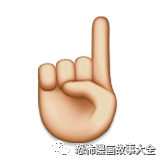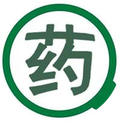 Click 【Herb Query】, then click the upper right corner 【···】to set as
Click 【Herb Query】, then click the upper right corner 【···】to set as starred/pinned
starred/pinned for easy access
for easy access
Traditional Chinese Medicine (TCM) believes that Qi in the human body has functions such as promoting, nourishing, and securing. Therefore, when Qi is deficient, bodily functions decline, and the spirit cannot be adequately nourished, leading to symptoms such as shortness of breath, low energy, dizziness, spontaneous sweating, fatigue, and exacerbation of symptoms after exertion.
Due to insufficient Yuan Qi, the functions of the organs decline, resulting in shortness of breath, low voice, reluctance to speak, fatigue, and weakness; Qi deficiency cannot ascend to nourish, leading to dizziness; weak Wei Qi cannot secure the skin, resulting in spontaneous sweating; “exertion depletes Qi” (from Suwen, Chapter on Pain), hence symptoms worsen after activity; deficient Ying Qi cannot ascend to the tongue, resulting in a pale, tender tongue; Qi deficiency weakens the ability to promote blood circulation, hence the pulse is weak.
When Qi deficiency loses its securing function, leading to loose muscle layers and weak external defenses, spontaneous sweating often occurs, making one susceptible to external pathogens. This is especially true for many people who have recently recovered from COVID-19; if not careful, they may catch a cold or reinfect with other pathogens, leading to a recurrence of symptoms.
TCM commonly uses four Qi-boosting formulas: Si Jun Zi Tang (Four Gentlemen Decoction), Shen Ling Bai Zhu San (Ginseng and Poria Powder), Bu Zhong Yi Qi Tang (Tonify the Middle and Augment the Qi Decoction), and Sheng Mai San (Generate the Pulse Powder). Which one should be used?
1. Si Jun Zi Tang: Specializes in Qi tonification and spleen strengthening
【Ingredients】Ren Shen (Ginseng), Bai Zhu (White Atractylodes), Fu Ling (Poria), Zhi Gan Cao (Honey-fried Licorice)
【Effects】This formula is commonly used to treat Spleen and Stomach Qi deficiency and is a fundamental Qi-boosting formula from which many later formulas for tonifying the spleen and Qi have been derived. It is indicated for pale complexion, low voice, shortness of breath, fatigue, poor appetite, loose stools, pale tongue with white coating, and weak pulse.
【Analysis】
Ren Shen serves as the monarch, tonifying Qi and strengthening the spleen;
Bai Zhu strengthens the spleen and dries dampness, assisting the spleen’s transformation and transportation, serving as the minister;
Fu Ling drains dampness and strengthens the spleen, serving as the assistant;
Zhi Gan Cao is sweet and warm, benefits Qi and harmonizes the middle, acting as the envoy.
Ren and Zhu used together enhance the Qi tonification and spleen strengthening effects;
Ling and Zhu work together, one draining and one securing, enhancing the effects of dampness elimination and turbidity transformation;
Ren and Zhu primarily focus on tonifying deficiency, while Fu Ling drains dampness and eliminates turbidity. The three herbs work together to tonify spleen Qi, dry spleen dampness, and harmonize tonification with drainage, ensuring that tonification does not stagnate and does not assist pathogens.
The combination of these herbs aligns with the spleen’s preference for sweetness, dryness, and movement, allowing the spleen and stomach Qi to flourish, and the dampness and turbidity of the middle jiao to be eliminated, thus restoring proper transformation and transportation. This formula is characterized by its balanced properties, being warm but not drying, tonifying but not stagnating, and draining without harming the righteous Qi, akin to the virtue of a gentleman, hence the name “Four Gentlemen,” revered as the foundational formula for Qi tonification.
2. Shen Ling Bai Zhu San: For Spleen deficiency with dampness, also capable of eliminating dampness and stopping diarrhea
【Ingredients】Lian Zi Rou (Lotus Seed Flesh), Yi Yi Ren (Job’s Tears), Sha Ren (Amomum Fruit), Jie Geng (Platycodon), Bian Dou (Hyacinth Bean), Fu Ling (Poria), Dang Shen (Codonopsis), Zhi Gan Cao (Honey-fried Licorice), Chao Bai Zhu (Fried Atractylodes), Shan Yao (Chinese Yam)
【Effects】This formula has the effects of strengthening the spleen, benefiting Qi, draining dampness, and stopping diarrhea. It is indicated for pale complexion, emaciation, low voice, shortness of breath, fatigue, poor appetite, chest fullness, nausea, vomiting, intestinal rumbling, diarrhea, cough with white phlegm, pale tongue with white greasy coating, and weak, slow pulse.
【Analysis】
In this formula, Ren Shen benefits Qi and strengthens the spleen, Shan Yao tonifies the spleen and stops diarrhea, Bai Zhu strengthens the spleen and dries dampness, and these three herbs work together to tonify deficiency, dry dampness, and stop diarrhea, serving as the monarch;
Bian Dou strengthens the spleen and transforms dampness, Fu Ling drains dampness and strengthens the spleen, working together with Bai Zhu to enhance the effects of spleen strengthening and dampness elimination;
Lian Zi Rou strengthens the spleen and stops diarrhea, and when combined with Shan Yao, enhances the effect of tonifying the spleen and astringing the intestines, serving as the minister;
Yi Yi Ren promotes urination and drains dampness, while also benefiting the spleen, assisting Fu Ling in draining dampness and strengthening the spleen;
Sha Ren is aromatic and transforms dampness, regulates Qi, and harmonizes the stomach, assisting Bai Zhu and Fu Ling in eliminating dampness while promoting the movement of Qi in the middle jiao;
Jie Geng opens and raises, promoting lung Qi, facilitating the flow of water pathways, aiding in the transformation of dampness, while also carrying the medicinal properties upward to benefit lung Qi.
The combination of Yi Yi Ren, Sha Ren, and Jie Geng focuses on transforming the dampness and turbidity of the middle jiao, allowing dampness to transform into Qi, thus alleviating symptoms of fullness, nausea, and diarrhea, while ensuring the spleen is not hindered by dampness, allowing for robust transformation and transportation of Qi and blood, nourishing the five organs.
Zhi Gan Cao benefits Qi and harmonizes the properties of the herbs, acting as the envoy. The combination of these herbs tonifies spleen and stomach Qi, transforms dampness in the middle jiao, and promotes the flow of Qi in the central region, restoring the spleen and stomach’s ability to transform and transport effectively. This formula is characterized by its ability to tonify while also draining, addressing both the root and branch, descending while also ascending, ensuring tonification does not stagnate and drainage does not harm the righteous Qi.
Due to its ability to tonify the spleen and benefit Qi, drain dampness, and transform turbidity, this formula enhances the spleen and stomach Qi, providing nourishment to the lung metal, and since it includes Jie Geng to carry the medicine upward into the lung meridian, it can also be used for lung Qi deficiency with phlegm-damp obstruction, reflecting the principle of “nurturing earth to generate metal.”
3. Bu Zhong Yi Qi Tang: Excels in lifting Yang and raising sinking Qi, with sweet warmth to clear heat
【Ingredients】Huang Qi (Astragalus), Dang Shen (Codonopsis), Dang Gui (Angelica), Chen Pi (Tangerine Peel), Sheng Ma (Cimicifuga), Chai Hu (Bupleurum), Bai Zhu (White Atractylodes), Zhi Gan Cao (Honey-fried Licorice)
【Effects】This formula is a representative of sweet warmth that clears heat, with the effects of tonifying the middle, benefiting Qi, and lifting Yang. It is indicated for Spleen and Stomach Qi deficiency, with symptoms of reduced appetite, fatigue, weakness, shortness of breath, pale complexion, loose stools, and a large, weak pulse. It is also indicated for Qi deficiency with sinking symptoms, such as prolapse of the rectum, uterine prolapse, chronic diarrhea, dysentery, and metrorrhagia, along with shortness of breath and fatigue, pale tongue, and weak pulse. Additionally, it addresses Qi deficiency with heat symptoms, such as fever, spontaneous sweating, thirst with a preference for warm drinks, shortness of breath, fatigue, pale tongue, and weak, large pulse.
【Analysis】
In this formula, Huang Qi is sweet and warm, tonifying the middle and benefiting Qi, serving as the monarch;
Dang Shen and Zhi Gan Cao are sweet and warm, benefiting Qi and assisting Huang Qi in its tonifying effects, while Bai Zhu is sweet and bitter, warm and drying, strengthening the spleen and drying dampness, serving as the minister;
Chen Pi is spicy, warm, and aromatic, regulating Qi and drying dampness to assist the spleen’s function, ensuring that the tonification does not obstruct the middle; a small amount of Sheng Ma and Chai Hu, which are spicy and dispersing, help to lift the clear Yang and assist the monarch’s lifting power; Dang Gui is sweet and warm, nourishing blood and harmonizing the Ying, serving as the assistant.
Zhi Gan Cao harmonizes the properties of the herbs, acting as the envoy.
The formula primarily uses sweet, warm, and drying herbs, with sweet warmth for tonification, spicy warmth for lifting, and bitter warmth for drying, ensuring that Qi deficiency is tonified, sinking Qi is lifted, and dampness is dried, allowing the spleen Qi to flourish, the clear Yang to rise, and the transformation to be robust, thus resolving all symptoms.
4. Sheng Mai San: Nourishes Yin and generates fluids for Qi and Yin deficiency
【Ingredients】Ren Shen (Ginseng), Mai Men Dong (Ophiopogon), Wu Wei Zi (Schisandra)
【Effects】This formula is commonly used to treat Qi and Yin deficiency, with the effects of benefiting Qi, generating fluids, and restraining Yin to stop sweating. It is indicated for excessive sweating, fatigue, weakness, shortness of breath, dry throat and mouth, red tongue with little coating, and weak, rapid pulse. It can also be used for chronic cough with lung deficiency, Qi and Yin deficiency, with symptoms of dry cough with little phlegm, shortness of breath, spontaneous sweating, dry mouth and tongue, and weak, thin pulse.
【Analysis】
In this formula, Ren Shen is sweet and warm, benefiting Qi and generating fluids to nourish the lungs; when lung Qi is strong, the Qi of all five organs is also strong, serving as the monarch;
Mai Men Dong is sweet and cold, nourishing Yin, clearing heat, and moistening the lungs, serving as the minister; the combination of Ren Shen and Mai Men Dong enhances the effects of Qi tonification and Yin nourishment;
Wu Wei Zi is sour and warm, restraining the lungs, stopping sweating, and generating fluids to relieve thirst, serving as the assistant.
When Qi is restored and Yin is preserved, the pulse becomes strong, hence the name “Sheng Mai” (Generate the Pulse). The “Medical Formula Collection” states: “If a person is on the verge of death and the pulse is absent, taking this can revive it, and its efficacy is significant.” For chronic cough with lung deficiency, Qi and Yin deficiency, it aims to benefit Qi and nourish Yin, restraining cough to seek a fundamental cure, allowing both Qi and Yin to recover, moistening the lungs and generating fluids, thus alleviating all symptoms.
End of text. Thank you for your patience in reading. If you find it helpful, please click “ Like” and “~▼Previous Highlights▼“Montmorillonite Powder” should not be used casually; TCM has many effective remedies for diarrhea! Chronic cough damages Yin; a decoction nourishes the lungs and kidneys, resolving dry cough with a gentle and harmonious cough remedy, applicable for both wind-cold and wind-heat.
Like” and “~▼Previous Highlights▼“Montmorillonite Powder” should not be used casually; TCM has many effective remedies for diarrhea! Chronic cough damages Yin; a decoction nourishes the lungs and kidneys, resolving dry cough with a gentle and harmonious cough remedy, applicable for both wind-cold and wind-heat.

